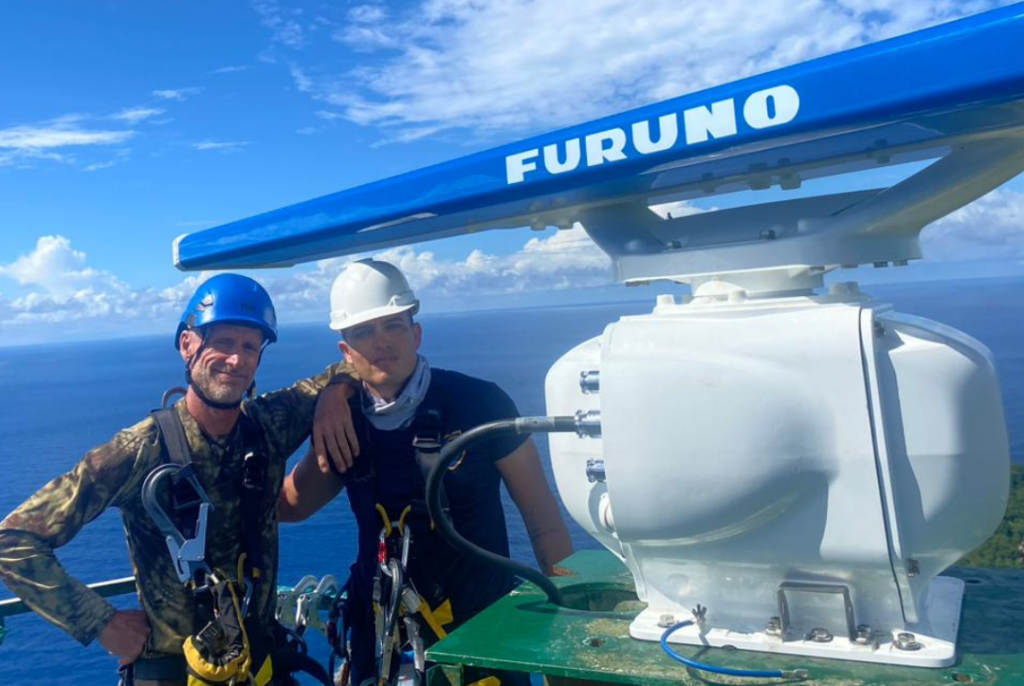
If sharks could speak, they might tell a story of survival against all odds. A decade ago, a study estimated that 100 million sharks were being killed annually, and 73% of them for their fins. Today, thanks to shifting minds and stronger protections, sharks’ chances of survival are growing.
For 20 years, WildAid has worked to protect sharks on two critical fronts: reducing consumer demand for shark products and strengthening marine enforcement to protect habitats. Together, these efforts are changing how the world sees sharks — not as villains or food, but as essential guardians of the ocean, keeping ecosystems balanced, coral reefs thriving, and fish populations healthy.
Although sharks continue to face threats — this is a story of hope: of global campaigns that shifted hearts and minds, of rangers equipped to patrol waters once left unguarded, and replenishing habitats. WildAid’s progress proves that change is possible.
Join us in celebrating two decades of impact.
Marine Enforcement
WildAid’s marine work was born in 2002 in the Galapagos Islands, where we recognized sharks needed protection. At the time, finning was rampant and enforcement was limited, with only a single, broken-down patrol boat available to protect an area the size of New York State.
In response, WildAid’s marine team introduced professional-level marine enforcement, equipping Galápagos rangers with patrol boats, radar, training, and law enforcement expertise. By building a groundbreaking alliance between the Ecuadorian Navy and the Galápagos Park Rangers, the islands became a global model for marine protected area enforcement and inspired the formal establishment of our marine program in 2004.


Building on this success, WildAid expanded across the Pacific between 2015 and 2020. In Palau and neighboring islands, we designed extensive enforcement training programs and encouraged communities to steward mangroves and coral reefs — essential nurseries for young sharks. Over the following decade, we added new tools such as radar and drone technology to disrupt illegal fishing.
In 2023, WildAid implemented radar systems and a state-of-the-art monitoring center in Costa Rica’s Cocos Island, where fishing is illegal. This led to an impressive 98% drop in apparent fishing efforts. Enabling 24/7 surveillance of the Cocos Marine Conservation Area has helped protect a critical migratory corridor for sharks and other marine life connecting Galápagos, Cocos, and beyond.
Today, our marine enforcement efforts continue to reach new shores. In the Bahamas, WildAid partners with the Bahamian Defense Force and U.S. agencies to prosecute shark finning and expand sanctuary protections. Real-time vessel tracking and predictive analytics are expanding across West Africa, Southeast Asia, and the Western Pacific. At the same time, shark ecotourism is growing stronger, helping the apex predators get recognized as vital contributors to both ecosystems and economies.
Demand Reduction
WildAid’s fight to reduce demand for shark fin soup began in China, during the Beijing Olympics in 2004. At the time, shark fin soup was served at weddings and banquets, and awareness of the cruelty behind it was low. Few knew that up to 73 million sharks a year were killed for their fins. To change that, WildAid launched bold campaigns featuring celebrity ambassadors like Yao Ming, Jackie Chan, and Maggie Q. These public service announcements reached millions, and shark conservation entered the public dialogue in an unprecedented way.
By 2009, public awareness of the harms of shark fin consumption rose from 30% to 80%. Then, in 2012, shark fin soup was banned at official Chinese government banquets, marking a significant step forward in the movement to reduce demand.


Recognizing the opportunity to spread our message wider, WildAid expanded campaigns to Hong Kong, Taiwan, Thailand, Singapore, and Vietnam. Airlines and hotels voluntarily remove shark fin products from their offerings. Yet surveys from Thailand in 2016 revealed that 61% of people had consumed shark fin and over half still intended to — a sobering reminder of the challenge ahead.
But just a couple years later, a real cultural shift started taking hold. WildAid’s ongoing campaigns helped shark fin demand in China drop by more than 80% since 2008. In many cities across Asia, shark fin soup has become socially unacceptable, particularly among younger generations who increasingly reject the dish.
In recent years, WildAid’s work has broken new ground. In 2023, the first-ever DNA analysis of shark fins sold in Thai markets revealed that 62% came from species listed as endangered by the IUCN. WildAid translated these findings into the accessible report “Endangered Sharks in Your Bowl,” which captured the attention of policymakers and the public.
Shark Ambassadors
WildAid is grateful to the numerous celebrity ambassadors who have helped change awareness and attitudes about sharks over time. From Yao Ming to Amanda Beard to Bowie Wu, and many more, countless voices around the world have spoken up and influenced minds. Here are some of the words that have left a lasting ripple effect:
Our Yao Ming campaign, which encouraged people to say no to shark fin soup, was critical in changing the course of shark consumption in China. One Guangzhou shark fin wholesaler described Yao Ming’s commercial impact as having “single-handedly” destroyed his business.
“Did you know that eating toxic mercury and BMAA in shark fins can increase your risk of getting Alzheimer’s disease?” said Bowie Wu in a video that reached millions. “Do we really have to be this extreme, just to get food? For our health, and the health of our friends and family, please do not eat shark fin soup.”
“If people tell you shark fin soup doesn’t kill millions of sharks each year — don’t buy it.” said Jay Chou on camera to a dining family. “If they tell you it’s not harming shark populations — don’t buy it. If they tell you it doesn’t contain mercury that can hurt you — definitely don’t buy it.”
Measurable Progress
WildAid continues to be at the forefront of innovation, pioneering DNA-based tools and artificial intelligence to make enforcement smarter and education sharper. Just as crucial, perceptions of sharks themselves have changed. Once feared, sharks are now increasingly seen as guardians of ocean health, symbols of resilience, and species worth celebrating.
- In Thailand, our campaigns have removed over 8 million bowls of shark fin soup from menus.
- In China, demand has dropped by 80% and shark fin soup has been banned from government banquets.
- Through expanded marine enforcement across 20+ coastal nations, more than 2 million square kilometers of coral reefs, mangroves, and seagrasses have been safeguarded — protecting vital habitat for sharks.
- At Costa Rica’s Cocos Island, apparent fishing efforts have dropped by 98%, due to a state-of-the art surveillance system and control center.
A Community of Support
WildAid’s progress is the result of a global effort — millions choosing to say no to shark fin soup, governments and communities defending their waters, and advocates everywhere standing up for sharks. None of this would be possible without our partners, ambassadors, and supporters like you. Together, we are changing and empowering the world to protect sharks and their vital habitats.
Looking Ahead: Our Next Chapter
The fight to protect sharks is far from over, but there is hope. With proven results and global momentum, WildAid is committed to ensuring that sharks continue to thrive for generations to come.
WildAid President and Chief Program Officer John Baker points to seven priorities that will continue to guide our work moving forward:
- Continue to strengthen regulations restricting international trade in sharks as outlined in the 7 new proposals for 70 species at the upcoming CITES Conference of the Parties (CoP) meeting in November, including whale sharks, oceanic white tip sharks, the smooth-hound shark family, and manta and devil rays, among others,
- Protect sharks (and all fish) as marine wildlife and address trafficking of marine wildlife through the international criminal law framework, along with all other wildlife crimes, as currently in discussion under the UN Treaty on Organized Crime, as John Scanlon and the Global Initiative to End Wildlife Crime proposes,
- Strengthen protections for sharks in national laws, including expanding policies beyond the focus on finning alone to address shark mortality — and enforce them effectively,
- Protect critical habitats with effective marine reserves,
- Strengthen fishery management and enforcement of illegal fishing,
- Increase supply chain transparency and reduce mislabeling, and
- Reduce demand for shark products and build public support for shark conservation, sustainable fisheries, and healthy oceans.
More specifically, our campaigns will increasingly focus on reducing demand and shifting awareness — including DNA studies, consumer education (i.e., shark products sold under alternative names), and social media influencer engagement.
If these past two decades have taught us anything, it’s that when sharks thrive, oceans thrive — and so do we.
Be part of what comes next. Join our email list for stories of progress and ways to make a difference.
Stay in touch and get the latest WildAid updates.
SIGN UP